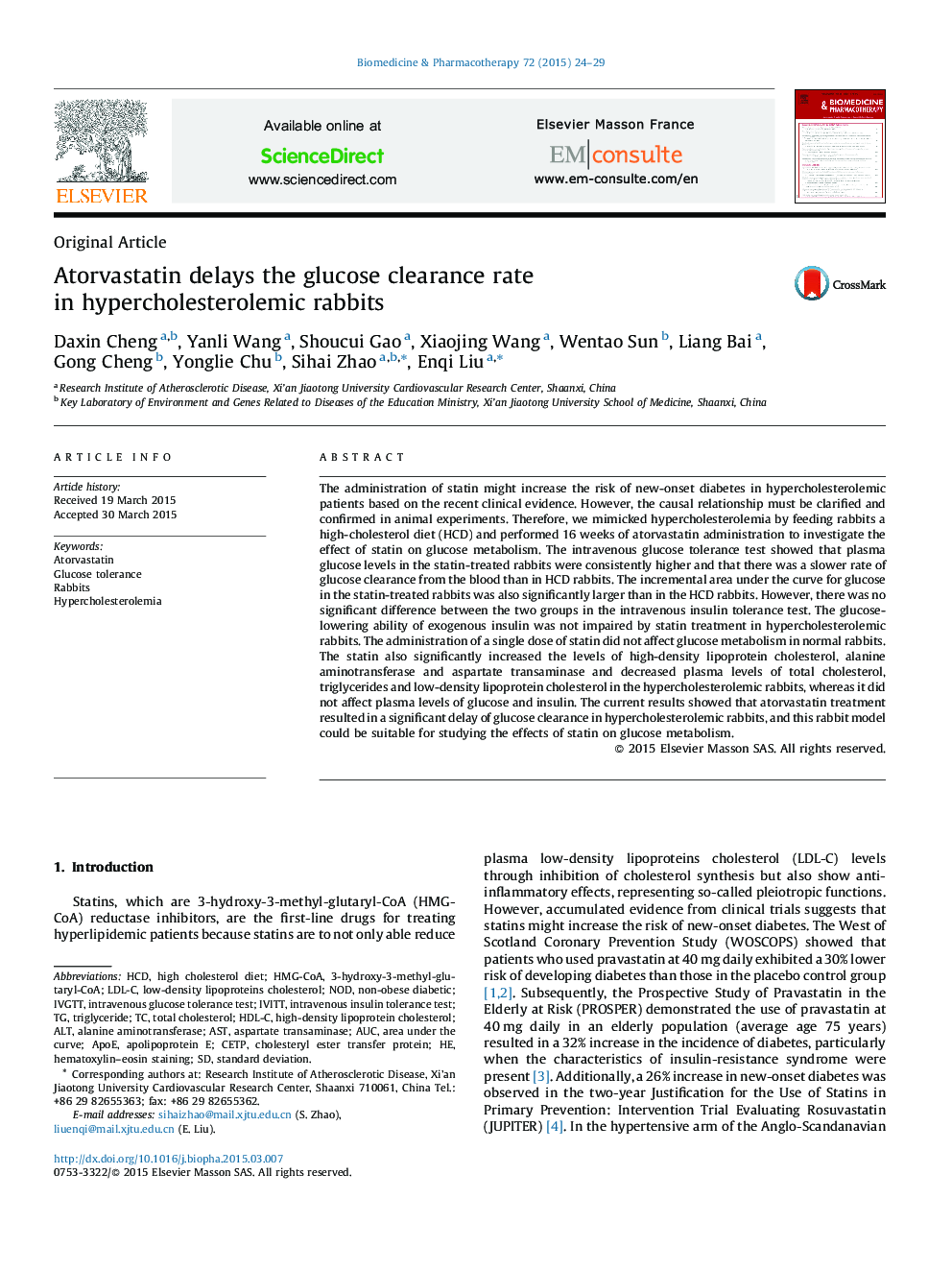| Article ID | Journal | Published Year | Pages | File Type |
|---|---|---|---|---|
| 2523948 | Biomedicine & Pharmacotherapy | 2015 | 6 Pages |
The administration of statin might increase the risk of new-onset diabetes in hypercholesterolemic patients based on the recent clinical evidence. However, the causal relationship must be clarified and confirmed in animal experiments. Therefore, we mimicked hypercholesterolemia by feeding rabbits a high-cholesterol diet (HCD) and performed 16 weeks of atorvastatin administration to investigate the effect of statin on glucose metabolism. The intravenous glucose tolerance test showed that plasma glucose levels in the statin-treated rabbits were consistently higher and that there was a slower rate of glucose clearance from the blood than in HCD rabbits. The incremental area under the curve for glucose in the statin-treated rabbits was also significantly larger than in the HCD rabbits. However, there was no significant difference between the two groups in the intravenous insulin tolerance test. The glucose-lowering ability of exogenous insulin was not impaired by statin treatment in hypercholesterolemic rabbits. The administration of a single dose of statin did not affect glucose metabolism in normal rabbits. The statin also significantly increased the levels of high-density lipoprotein cholesterol, alanine aminotransferase and aspartate transaminase and decreased plasma levels of total cholesterol, triglycerides and low-density lipoprotein cholesterol in the hypercholesterolemic rabbits, whereas it did not affect plasma levels of glucose and insulin. The current results showed that atorvastatin treatment resulted in a significant delay of glucose clearance in hypercholesterolemic rabbits, and this rabbit model could be suitable for studying the effects of statin on glucose metabolism.
